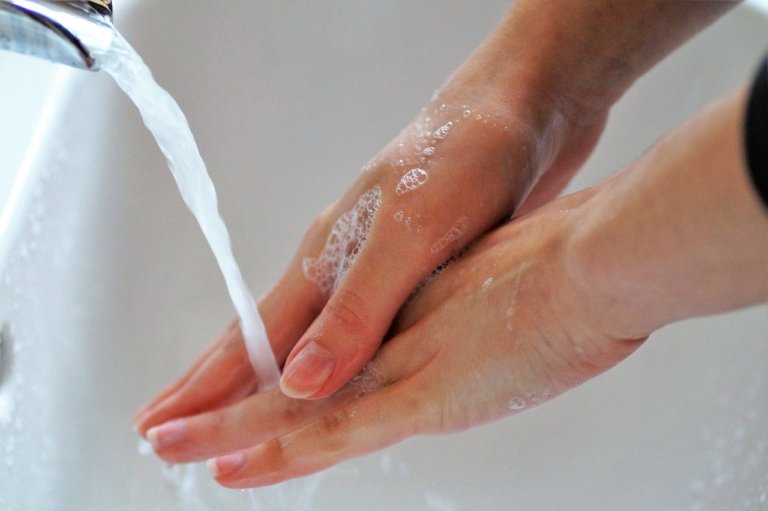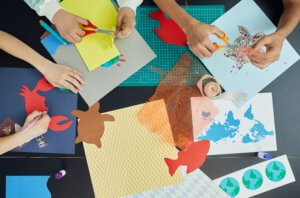A lot of clubs will be sending emails to athletes and their parents to keep them updated on class cancellations and temporary facility closures. With this in mind, we’ve gathered some advice and resources on how best to communicate with kids about COVID-19 during these challenging times.
While some administrators may not be communicating directly with young athletes, it may still be helpful to communicate with their care in mind, and offer helpful resources to parents when appropriate.
But, before diving into our list of resources from experts, we’d like to address the general idea of including children; both through sharing information about COVID-19 and by making sure kids are acknowledged for their efforts.
Don’t be Afraid to Talk to Kids About the Coronavirus
In the above video, Dr. Jamie Howard of the Child Mind Institute explains that not talking about COVID-19 can actually be more worrying for children. Since children are very likely to have heard about COVID-19, especially now that many parents’ working practices have changed, avoiding a discussion about it could do more harm than good.
This idea is also touched upon by Therapist Jonathan Vickburg who told the Los Angeles Times that, “the message that’s conveyed if parents don’t give information [about COVID-19] is that it’s too scary for even parents to talk about.” Clearly, the question isn’t about whether or not parents should talk to kids about COVID-19. Instead, the question is, how should parents talk about it? Or, more generally, what should kids learn about COVID-19?
The general consensus from experts is that kids should not be left to discover information on their own. Instead, it’s best to prevent kids from over-consuming information or “binge watching” online videos about COVID-19. As the CDC explains, “too much information about one topic can lead to anxiety.”
In the video above, Dr. Jamie Howard says,
“we recommend that parents are the ones who consume the news and give their kids information that is factual and not so emotional or exaggerated.”
One of the key phrases here is factual. Not surprisingly, there is plenty of exaggerated and false information circulating social media. This information is often crafted to elicit high levels of fear or controversy to attract more attention. Keeping kids away from this type of content can help reduce anxiety and give kids a better chance at establishing a sense of well-being.
When parents are sharing information about COVID-19, experts stress the importance of age appropriate or developmentally appropriate discussion. Psychology Today covers this topic in-depth, outlining the needs of each age group from Early Childhood through to High School. You can review that resource here.
Of course, the parent-child relationship is never a one-way street. Beyond simply sharing information about COVID-19, it’s also helpful to acknowledge the efforts of children.
Thank Kids for Their Participation in Social Distancing and Isolation Practices
Children are actively involved in changing daily schedules including social distancing practices and isolation practices. As a result, it can be meaningful to acknowledge their sacrifices and their help. In Canada, both the Prime Minister and Deputy Prime Minister have made a point to say thanks to kids across the country:
“Thank you for helping your parents work from home, for sacrificing your usual day and doing math class around the kitchen table and trusting in science,” – Prime Minister Justin Trudeau
“If I may make one personal comment, I would like especially to thank all of the children of Canada. I know personally how hard it is for children, so, thank you very much.” – Deputy Prime Minister Chrystia Freeland
By saying thank you, kids may feel more included and know that their efforts are being noticed. This can go along way in keeping children engaged in household COVID-19 adjustments today, and moving forward.
For more recommendations on how to talk about COVID-19 with kids, please see our curated list of resources below.
Helpful COVID-19 Resources for Kids:
- How washing your hands helps defend against COVID-19 by Dr. Michelle Dickinson (Dr. Dickinson has been active alongside the Prime Minister of New Zealand in addressing children)
Additional Helpful Resources for Talking to Kids about COVID-19
- Various posters and infographics about COVID-19 safety and symptoms from the Fraser Health Institute (B.C., Canada)
- Talking to your anxious child about COVID-19 by Children’s Mental Health Ontario (ON, Canada)
- Helping children cope with stress during the COVID-19 outbreak by The World Health Organization
- Be realistically reassuring when talking to kids about COVID-19 by the Canadian Paediatric Society (Canada)
- How to manage your mental health during COVID-19 by the Canadian Mental Health Association (Canada)
- Talking with children about Coronavirus Disease 2019 by The Center of Disease Control (United States)
- Helping children cope with emergencies by The Center for Disease Control (United States)
We will continue to update this short list of resources as public knowledge, and public resources from trustworthy and knowledgeable sources continue to become available. Do you have a COVID-19 resource that could be helpful for kids and parents? Please, send us a link on Twitter, Facebook, or Instagram.





